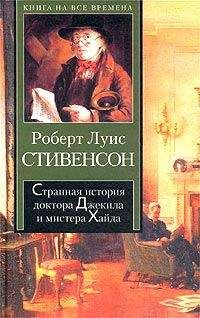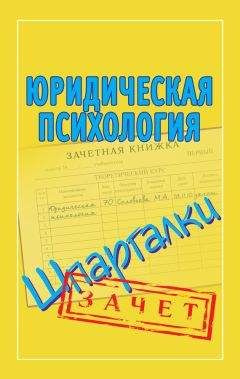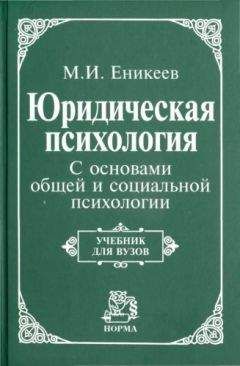Роберт Стивенсон - Английский с Р. Л. Стивенсоном. Странная история доктора Джекила и мистера Хайда / Robert Louis Stevenson. The Strange Case of Dr. Jekyll and Mr. Hyde
“I wouldn’t speak of this note (я бы не стал говорить об этой записке = никому не говорите об этом письме),” said the master (сказал нотариус; master – хозяин, господин).
“No, sir,” said the clerk. “I understand (я понимаю).”
But no sooner was Mr. Utterson alone that night (и как только тем вечером мистер Аттерсон оказался один), than he locked the note into his safe (он запер это письмо в свой сейф), where it reposed from that time forward (где оно с тех пор и лежит; to repose – отдыхать; лежать). “What!” he thought. “Henry Jekyll forge for a murderer (как, Генри Джекил пишет подделку ради /спасения/ убийцы; to forge – ковать; подделывать, фальсифицировать)!” And his blood ran cold in his veins (и кровь застыла у него в жилах; to run – бежать; становиться, делаться).
There was a pause, during which Mr. Utterson struggled with himself. “Why did you compare them, Guest?” he inquired suddenly.
“Well, sir,” returned the clerk, “there’s a rather singular resemblance; the two hands are in many points identical; only differently sloped.”
“Rather quaint,” said Utterson.
“It is, as you say, rather quaint,” returned Guest.
“I wouldn’t speak of this note,” said the master.
“No, sir,” said the clerk. “I understand.”
But no sooner was Mr. Utterson alone that night, than he locked the note into his safe, where it reposed from that time forward. “What!” he thought. “Henry Jekyll forge for a murderer!” And his blood ran cold in his veins.
VI
Remarkable Incident of Dr. Lanyon
(Удивительное происшествие/примечательный эпизод с доктором Лэньоном)
Time ran on (время шло; to run on – продолжаться, тянуться); thousands of pounds were offered in reward (за поимку преступника была предложена сумма в несколько тысяч фунтов; reward – награда; денежное вознаграждение /за выдачу преступника, находку и т. п./), for the death of Sir Danvers was resented as a public injury (так как смерть сэра Дэнверса вызвала всеобщее негодование: «с негодованием была воспринята как оскорбление /всего/ общества/преступление против общества»; to resent – негодовать, возмущаться; injury – телесное повреждение; вред, оскорбление); but Mr. Hyde had disappeared out of the ken of the police (но мистер Хайд исчез из поля зрения полиции; ken – кругозор; предел познаний, круг знаний) as though he had never existed (словно его никогда и не существовало). Much of his past was unearthed, indeed, and all disreputable (многое из его прошлого было вытащено на поверхность, и все – постыдное; to unearth – выкапывать из земли; выявлять, раскапывать): tales came out of the man’s cruelty, at once so callous and violent (появлялись рассказы о его жестокости, одновременно бездушной и яростной; callous – мозолистый /о руках/; бессердечный), of his vile life (о его гнусной жизни), of his strange associates (о его странных дружках; associate – компаньон; сообщник, соучастник), of the hatred that seemed to have surrounded his career (о ненависти, которая, казалось, сопровождала всю его жизнь; to surround – окружать, обступать; career – карьера; жизненный путь); but of his present whereabouts not a whisper (но о его нынешнем местонахождении – ни слова; whisper – шепот; слово, намек).
Time ran on; thousands of pounds were offered in reward, for the death of Sir Danvers was resented as a public injury; but Mr. Hyde had disappeared out of the ken of the police as though he had never existed. Much of his past was unearthed, indeed, and all disreputable: tales came out of the man’s cruelty, at once so callous and violent, of his vile life, of his strange associates, of the hatred that seemed to have surrounded his career; but of his present whereabouts not a whisper.
From the time he had left the house in Soho on the morning of the murder (с того момента, когда он покинул дом в Сохо в утро убийства; time – время; определенный момент), he was simply blotted out (он просто-напросто испарился; to blot /out/ – стирать, вычеркивать; blot – пятно; клякса); and gradually, as time drew on, Mr. Utterson began to recover from the hotness of his alarm (и постепенно, со временем, мистер Аттерсон начал оправляться от своей жгучей тревоги; to draw on – идти, протекать /о времени/; hot – горячий, жаркий; напряженный), and to grow more quiet with himself (и становиться все более спокойным). The death of Sir Danvers was, to his way of thinking (по его мнению, смерть сэра Дэнверса), more than paid for by the disappearance of Mr. Hyde (была более чем искуплена исчезновением мистера Хайда; to pay – платить; возмещать). Now that the evil influence had been withdrawn (теперь, когда пагубное влияние исчезло; to withdraw – отдергивать /напр., руку/; отнимать; ретироваться, удаляться, уходить), a new life began for Dr. Jekyll (для доктора Джекила началась новая жизнь).
From the time he had left the house in Soho on the morning of the murder, he was simply blotted out; and gradually, as time drew on, Mr. Utterson began to recover from the hotness of his alarm, and to grow more quiet with himself. The death of Sir Danvers was, to his way of thinking, more than paid for by the disappearance of Mr. Hyde. Now that the evil influence had been withdrawn, a new life began for Dr. Jekyll.
He came out of his seclusion (он вырвался из своего уединения), renewed relations with his friends (возобновил отношения со своими друзьями), became once more their familiar guest and entertainer (вновь превратившись в их привычного гостя и гостеприимного хозяина; familiar – близкий; давно знакомый, привычный; to entertain – развлекать; принимать, угощать /гостей/); and whilst he had always been known for charities (и тогда как он всегда был известен = славился своей благотворительностью), he was now no less distinguished for his religion (теперь он стал не менее известен своей религиозностью = благочестием). He was busy, he was much in the open air, he did good (он вел деятельную жизнь, проводил много времени на открытом воздухе, занимался благотворительностью); his face seemed to open and brighten (лицо его, казалось, стало более открытым и наполнилось радостью; to brighten – проясняться, оживляться), as if with an inward consciousness of service (словно от внутреннего сознания служения = как у человека, обретшего душевный мир в служении добру; service – услужение; одолжение, помощь); and for more than two months, the doctor was at peace (и более чем два месяца доктор пребывал в спокойствии; peace – мир; покой, спокойствие).
He came out of his seclusion, renewed relations with his friends, became once more their familiar guest and entertainer; and whilst he had always been known for charities, he was now no less distinguished for his religion. He was busy, he was much in the open air, he did good; his face seemed to open and brighten, as if with an inward consciousness of service; and for more than two months, the doctor was at peace.
On the 8th of January Utterson had dined at the doctor’s with a small party (восьмого января Аттерсон обедал у доктора в небольшой компании друзей; party – отряд, команда; компания); Lanyon had been there (там также присутствовал и Лэньон); and the face of the host had looked from one to the other (и хозяин переводил взгляд от одного к другому) as in the old days when the trio were inseparable friends (как в старые времена, когда все трое были неразлучными друзьями). On the 12th, and again on the 14th, the door was shut against the lawyer (двенадцатого, а потом еще и четырнадцатого, дверь для нотариуса оказалась закрытой; against – против; от). “The doctor was confined to the house (доктор заперся в доме; confined – ограниченный; заключенный),” Poole said, “and saw no one (и никого не принимал; to see – видеть; принимать).” On the 15th, he tried again, and was again refused (пятнадцатого числа он снова попытался /увидеться с доктором/, и вновь ему было отказано); and having now been used for the last two months to see his friend almost daily (и, так как за эти последние два месяца он привык видеться со своим другом почти каждый день), he found this return of solitude to weigh upon his spirits (он обнаружил, что это возвращение к одиночеству стало угнетать его; to weigh – взвешивать; довлеть, угнетать; spirit – душа; настроение, душевное состояние). The fifth night, he had in Guest to dine with him (на пятый день: «на пятую ночь» он пригласил Геста к себе, чтобы отобедать с ним; to have in – приглашать в гости; вызывать на дом); and the sixth he betook himself to Dr. Lanyon’s (а на шестой отправился к доктору Лэньону; to betake oneself to – удаляться, отправляться /куда-либо/).
On the 8th of January Utterson had dined at the doctor’s with a small party; Lanyon had been there; and the face of the host had looked from one to the other as in the old days when the trio were inseparable friends. On the 12th, and again on the 14th, the door was shut against the lawyer. “The doctor was confined to the house,” Poole said, “and saw no one.” On the 15th, he tried again, and was again refused; and having now been used for the last two months to see his friend almost daily, he found this return of solitude to weigh upon his spirits. The fifth night, he had in Guest to dine with him; and the sixth he betook himself to Dr. Lanyon’s.
There at least he was not denied admittance (там, по крайней мере, ему не отказали = позволили войти: «ему не было отказано в приеме»; to deny – отрицать; отказывать, не давать; admittance – вход, доступ, подход; разрешение на вход; to admit – допускать; принимать; впускать); but when he came in (но когда он вошел), he was shocked at the change which had taken place in the doctor’s appearance (он был потрясен переменой, произошедшей во внешности доктора). He had his death-warrant written legibly upon his face (на его лице был четко написан = ясно читался смертный приговор; legibly – разборчиво, четко). The rosy man had grown pale (этот цветущий человек побледнел; rosy – розовый; румяный, цветущий); his flesh had fallen away (он сильно исхудал; flesh – тело, плоть; to fall away – уменьшаться; худеть, терять в весе); he was visibly balder and older (он заметно полысел и постарел); and yet it was not so much these tokens of a swift physical decay (и все же не столько симптомы быстротечного телесного упадка; token – знак, символ; признак, примета; симптом) that arrested the lawyer’s notice (остановили на себе внимание нотариуса; to arrest – арестовать; приковывать, останавливать), as a look in the eye and quality of manner (сколько взгляд в его глазах и некая манера поведения) that seemed to testify to some deep-seated terror of the mind (которые, казалось, свидетельствовали о каком-то затаенном: «глубоко засевшем» душевном ужасе; quality – качество; свойство, признак; to testify – давать показания; свидетельствовать; to seat – располагаться, находиться, пребывать, быть расположенным, помещаться).




